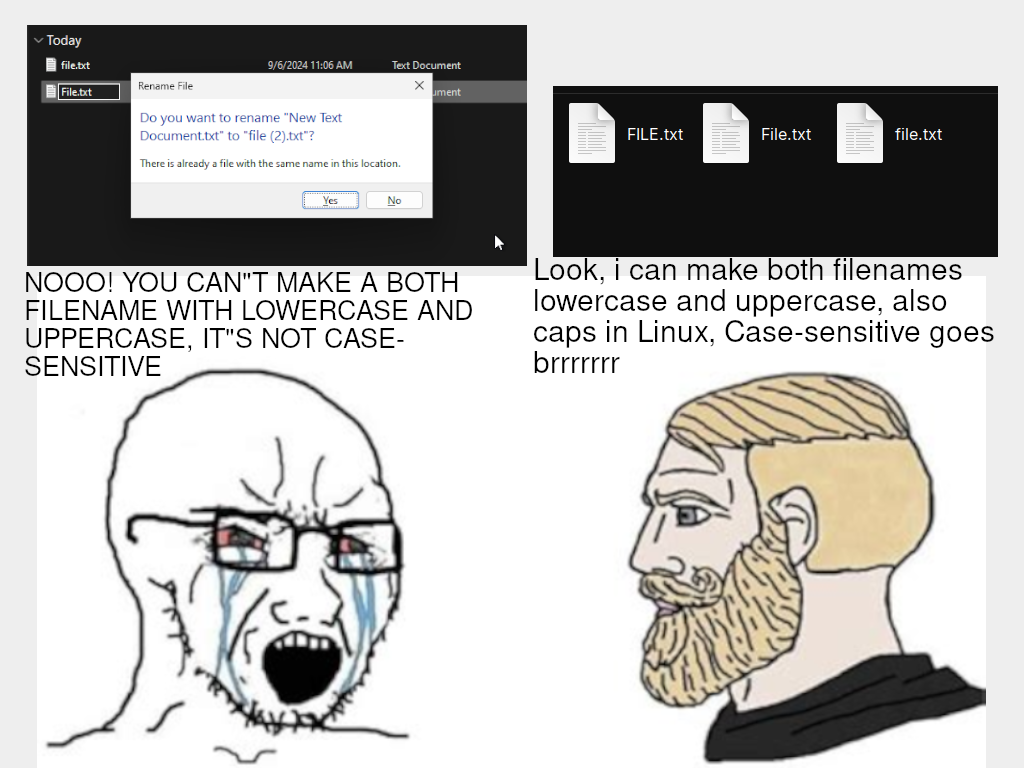this post was submitted on 06 Sep 2024
611 points (90.4% liked)
linuxmemes
21025 readers
294 users here now
Hint: :q!
Sister communities:
- LemmyMemes: Memes
- LemmyShitpost: Anything and everything goes.
- RISA: Star Trek memes and shitposts
Community rules (click to expand)
1. Follow the site-wide rules
- Instance-wide TOS: https://legal.lemmy.world/tos/
- Lemmy code of conduct: https://join-lemmy.org/docs/code_of_conduct.html
2. Be civil
- Understand the difference between a joke and an insult.
- Do not harrass or attack members of the community for any reason.
- Leave remarks of "peasantry" to the PCMR community. If you dislike an OS/service/application, attack the thing you dislike, not the individuals who use it. Some people may not have a choice.
- Bigotry will not be tolerated.
- These rules are somewhat loosened when the subject is a public figure. Still, do not attack their person or incite harrassment.
3. Post Linux-related content
- Including Unix and BSD.
- Non-Linux content is acceptable as long as it makes a reference to Linux. For example, the poorly made mockery of
sudoin Windows. - No porn. Even if you watch it on a Linux machine.
4. No recent reposts
- Everybody uses Arch btw, can't quit Vim, and wants to interject for a moment. You can stop now.
Please report posts and comments that break these rules!
founded 1 year ago
MODERATORS
you are viewing a single comment's thread
view the rest of the comments
view the rest of the comments

I would argue that elegance and being easy to program are virtues by themselves, because it makes code easy to understand and easy to maintain.
A one-to-one string to filename mapping is straightforward and elegant. It's easy to understand ("a filename is a unique string of characters"), it makes file name comparisons easy (a bit level compare suffices) and as long as you consistently use the case that you intend, it doesn't behave unexpectedly. It really is the way of the least surprise.
After all, case often does have meaning, so why shouldn't it be treated as a meaningful part of a filename? For example: "French fries.jpg" could contain a picture of fries specifically made in France, whereas "french fries.jpg" could contain a picture of fries made anywhere. Or "November rain.mp3" could be the sound of rain falling in the month of November, whereas "November Rain.mp3" is a Guns N' Roses song. All silly examples of course, but they're merely to demonstrate that capitalization does have meaning, and so we should be able to express that canonically in filenames as well.
It's not elegant when it causes more problems than it solves.